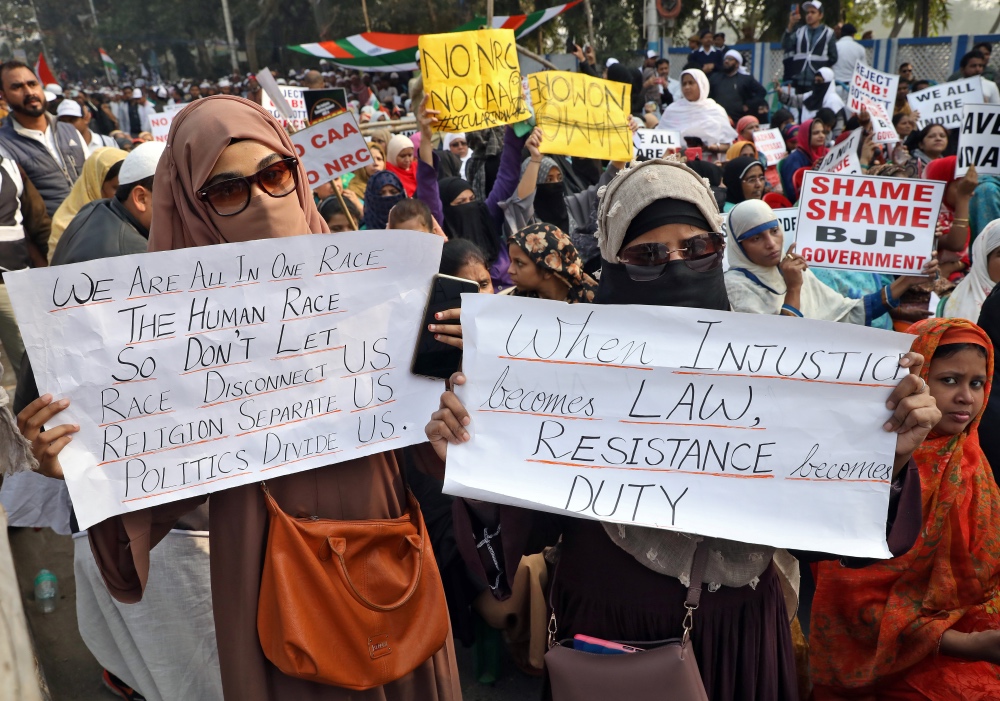Mumbai, India
Thomson Reuters Foundation
Authorities in the Indian states of Assam and West Bengal have vowed to protect the land rights of Indigenous people and refugees amidst protests against a new citizenship law that critics say discriminates against Muslims.
In the north-eastern state of Assam, a planned law will prevent Indigenous people from selling land to non-Indigenous persons, Finance Minister Himanta Biswa Sarma said.

Women display placards during a protest, organised by West Bengal State Jamiat-e-Ulama, an Islamic organisation, against a new citizenship law, in Kolkata, India, on 22nd December. PICTURE: Reuters/Rupak De Chowdhuri
“That means our land will be preserved for our people,” Sarma told reporters at the weekend after the state cabinet passed the measure.
But there is little clarity on the definition of an Indigenous person in the state, where nearly two million people were left off a citizens’ register earlier this year.
In addition, nearly two-thirds of the land in the state, which borders Muslim-majority Bangladesh, is common land, said Walter Fernandes, a senior fellow at the North Eastern Social Research Centre, a thinktank.
“When so much of the land belongs to the state, there is no question of selling or transferring that land,” he said.
“There are also several definitions of Indigenous people, including tribal people, Assamese people, and others who have lived in the state for several decades. So it is not clear who the law will benefit,” he told the Thomson Reuters Foundation.
Prime Minister Narendra Modi’s government says that the new Citizenship Amendment Act is aimed at helping non-Muslim minorities from Afghanistan, Bangladesh and Pakistan who fled to India before 2015, with a pathway to Indian citizenship.
But many Indians believe that the law discriminates against Muslims and violates the country’s secular constitution by making religion a test for citizenship.
India is not a signatory to the 1951 Refugee Convention, which spells out refugee rights and state responsibilities to protect them.
Nor does it have a domestic law to protect the more than 200,000 refugees it hosts, including Tibetans, Sri Lankans, Afghans, Bangladeshis and Rohingyas from Myanmar.
Modi, in a rally on Sunday, said his government has introduced reforms without any religious bias.
At least 21 people have died in clashes with police as thousands of people took to the streets in towns and cities across India to protest the law, marking the biggest challenge to Modi’s leadership since he first swept to power in 2014.
Mamata Banerjee, West Bengal’s chief minister, said she will not implement the citizenship law in the state.
She said her government will expedite giving land rights to tens of thousands of immigrants who have lived in the state for nearly five decades.
“The state has been granting land titles to migrants from Nepal and Bangladesh, which gives them an identity and some measure of protection,” said Fernandes.
“It lets them be counted as legal.”





